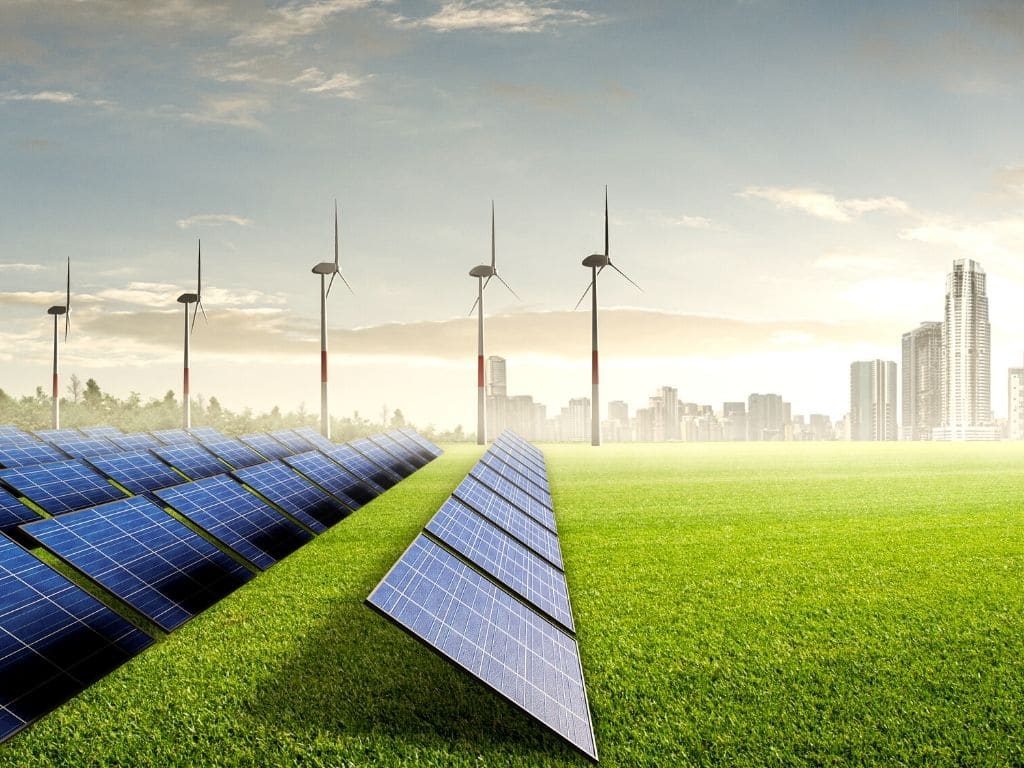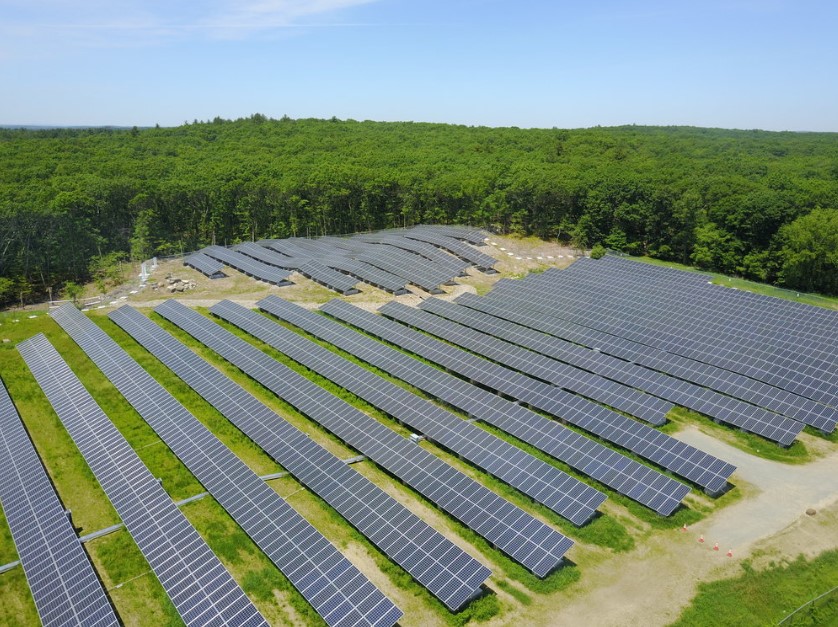Your cart is empty
Shop our productsCommunity solar projects, also known as shared solar or solar gardens, allow multiple individuals and organizations to benefit from solar without ever having to install solar panels on their own property.
Instead, a large solar array is installed in a central location, and participants can buy or lease a portion of the energy produced.
There are several benefits to community solar projects, ranging from environmental to financial.
Environmental Benefits

One of the primary benefits of community solar projects is their positive impact on the environment.
By generating clean, renewable energy, community solar projects help reduce our overall carbon dioxide emissions and other harmful pollutants contributing to climate change.
In addition, solar energy does not require water for fuel, unlike traditional power plants, which can help to conserve water resources in areas where water is scarce.
Financial Benefits
Community solar projects can also provide financial benefits to participants. By buying or leasing a portion of the energy produced by the solar array, participants can save money on their electricity bills.
In some cases, participants may be able to lock in a fixed rate for the energy they use, protecting them from future rate increases.
In addition, community solar projects can be a way for individuals and organizations to invest in renewable energy without the upfront costs of installing solar panels on their property.
Access to Solar Energy
For many individuals and organizations, installing solar panels on their property may not be feasible due to factors such as location, shading, or financial constraints.
Community solar projects provide a way for these individuals and organizations to access solar energy and reap the benefits of clean, renewable energy without installing solar panels on their property.
Supporting Local Economies
Community solar projects can also provide economic benefits to the local community. Solar projects often require local
labor and materials, providing jobs and stimulating economic activity in the surrounding area.
In addition, community solar projects can help to keep energy dollars within the community rather than being sent to out-of-state utilities.
Energy Independence
By generating their own clean energy, communities can become more energy independent, reducing their reliance on fossil fuels and centralized power grids.
This can help to increase energy security and resilience, particularly in the face of natural disasters or other disruptions to the energy system.
Inclusive Energy Access
Community solar projects can help address energy poverty and promote equity in the energy system by providing access to clean, renewable energy.
Community solar projects can also increase access to renewable energy for low-income households and underserved communities.
Community solar projects may be specifically designed to provide energy access to these populations.
Challenges and Considerations

Community solar projects offer a lot of benefits, but they also come with some challenges and considerations.
We will discuss some of these points that should be taken into account when implementing community solar projects.
Site Selection
One of the main challenges of community solar projects is finding the right site. The site must have adequate sunlight exposure and be big enough to house the solar panels and be close to the community that will be using the energy.
The site must also be owned by a willing landowner or public entity.
Site selection is a crucial consideration because it can greatly affect the cost and feasibility of the project.
Financing
Financing is another challenge of community solar projects. These projects can require a significant upfront investment, which can be difficult to obtain.
However, there are various financing options available, such as loans, grants, and tax credits.
Community solar projects may also be financed through crowdfunding, which allows individuals and organizations to contribute to the project.
Regulatory Issues
Community solar projects are subject to various regulations at the federal, state, and local levels.
These regulations can affect the project’s design, installation, and operation.
It is important to work with experienced professionals who understand the regulatory landscape of community solar projects.
These people need to be able to navigate the complex process of obtaining permits and site approvals.
Technical Considerations
Community solar projects require careful planning and design to ensure they are technically feasible and produce the desired level of energy output.
Technical considerations include the selection of appropriate solar panels, inverters, and other equipment, as well as the layout and orientation of the panels.
It is important to work with experienced professionals who can provide expert guidance on the technical aspects of the project.
Community Engagement
Community engagement is a critical consideration for community solar projects. These projects rely on community support and participation to succeed.
Community members must be informed and engaged throughout the project’s development and operation.
This includes providing regular updates, soliciting feedback, and addressing concerns and questions from community members.
Maintenance and Operations
Finally, maintenance and operations are key considerations for community solar projects.
These systems require ongoing maintenance to ensure they are operating at peak efficiency.
Ongoing maintenance and repair plans are important to have in place, as well as monitoring the system’s performance to ensure it is meeting its energy production goals.
Final Thought
Community solar projects offer many benefits, from reducing greenhouse gas emissions and providing access to clean energy to saving money on electricity bills and stimulating local economies.
While there are challenges and considerations to be taken into account, community solar projects have the reduce the amount of green house gas emissions in our atmosphere and contribute to a clean, renewable energy future.
Shop products from this article
Be the First to Know
You May Also Like

What Does a 30% Federal Solar Tax Credit Mean and How to Apply?
Governments around the world are offering programs that encourage homeowners to switch to solar energy. Among the most notable programs is the 30% Federal Solar Tax Credit. It reduces your...

Deadly Flooding Devastates U.S. South and Midwest — What You Need to Know

















































































































































































































































